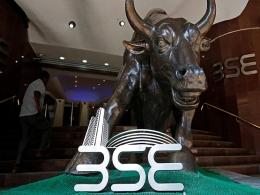The Indian rupee rose to its highest level in nearly six months on Friday, gaining for a third straight session, with traders saying the central bank refrained from currency intervention as foreign investors piled into equity markets.
The rupee rose nearly 2% for the week, its biggest weekly gain since the week ending Dec. 21, 2018 when it rose 2.4%.
The currency had been trading in a tight range until this week, as the Reserve Bank of India was seen regularly buying dollars via state-run banks to prevent a sharp appreciation in the rupee.
The partially convertible rupee ended Friday at 73.3850 per dollar, up 0.6% on day. It had risen to 73.28 earlier, its strongest level since March 5.
"The sharp fall in dollar/rupee spot has been very unexpected and traders are in shock, with every major support being tested," said Rahul Gupta, head of currency research at Emkay Global Financial Services.
"Initially, RBI was protecting 74.50 zone but its absence has led to a free fall. Technically, 73 looks to be a strong support and unless the spot doesn’t consistently trade above 73.50 the (dollar) bearishness will continue, with 74 being resistance."
Dollar inflows into the stock market and gains in other Asian peers have helped fuel the rupee's strength.
Foreign portfolio investors (FPIs) have bought $6.2 billion worth of shares so far in August and the U.S. Federal Reserve's recent policy shift could further boost inflows, said traders.
The U.S. Federal Reserve on Thursday rolled out a sweeping rewrite of its approach to its role of achieving maximum employment and stable prices and promised to aim for 2% inflation on average, suggesting interest rates may stay near zero for much longer than anticipated.
The RBI is however expected to keep intervening intermittently and continue building its forex reserves, which are up $60 billion at $535.35 billion since the start of the fiscal year in April.
"We forecast a rise in foreign reserves to $567 billion by the end of FY20-21, and to $642 billion by end-FY21-22, expanding India's level of import cover," said Rahul Bajoria, an economist with Barclays.







